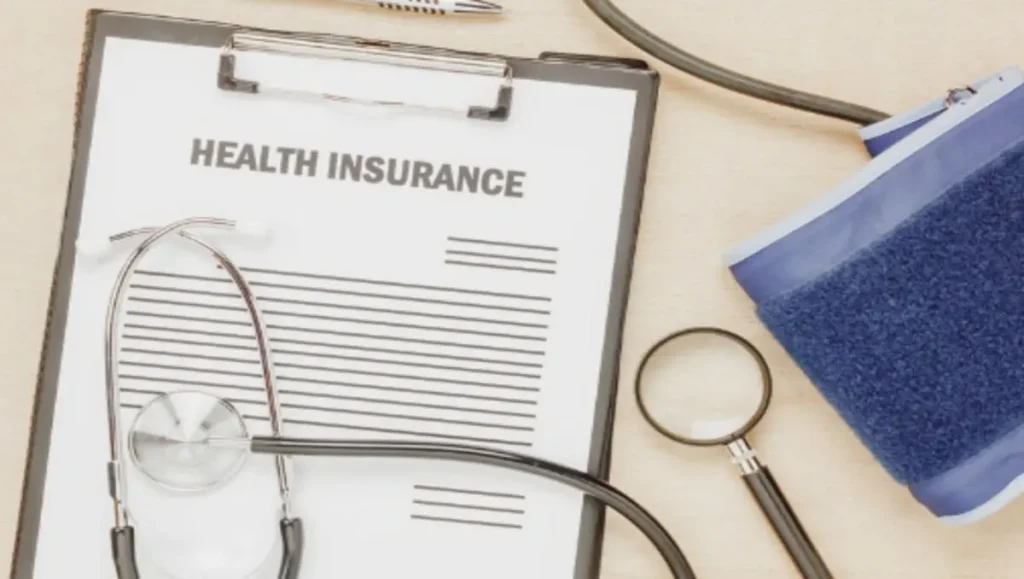Health insurance might sound complicated, but it’s actually a very important part of staying healthy and financially secure. Whether you’re a student, a young professional, or someone thinking about retirement, understanding how health insurance works can make a big difference. This guide will walk you through everything you need to know about health insurance in simple, friendly terms.
What is Health Insurance?
Let’s start with the basics: Health insurance is a type of coverage that helps you pay for medical expenses. When you have health insurance, your insurance company helps you cover the costs of doctor visits, hospital stays, prescription medications, and sometimes even preventive care like vaccinations and screenings.
Think of health insurance like a safety net for your health. Without it, paying for medical care can be very expensive. Health insurance spreads the cost of healthcare among many people, so each person only has to pay a small share when they need care.
Why is Health Insurance Important?
Imagine you get sick or have an accident and need to go to the hospital. Without health insurance, those medical bills could quickly pile up. A single hospital stay or surgery could cost thousands, if not hundreds of thousands of dollars. Health insurance helps reduce those costs, so you don’t have to pay for everything out of pocket.
Here are some key reasons why health insurance is so important:
- Financial Protection: Medical bills can be a huge financial burden. Health insurance reduces the amount you need to pay, protecting you from high costs.
- Access to Care: With insurance, you can access a wide range of medical services when you need them—whether it’s a routine check-up or an emergency procedure.
- Preventive Care: Many insurance plans cover preventive services at no extra cost, such as flu shots, screenings for cancer, and blood pressure checks. Prevention is often the best way to avoid more serious health problems in the future.
- Peace of Mind: Knowing that you have insurance can give you peace of mind. You won’t have to worry about how to afford care if something unexpected happens.
Types of Health Insurance Plans
Now that you know why health insurance is important, let’s talk about the different types of health insurance plans available. Understanding the differences can help you choose the right plan for your needs.

- Employer-Sponsored Insurance
One of the most common ways people get health insurance is through their employer. If your job offers health insurance, it’s usually a good deal because the employer often pays a significant portion of the premium (the monthly cost). This is known as employer-sponsored or group health insurance.
With employer-sponsored insurance, you might have a few different plans to choose from, but the overall cost is usually lower than buying insurance on your own. Plus, your premiums are often taken out of your paycheck, which makes the process easier.
- Individual Health Insurance
If you don’t have employer-sponsored insurance, you can buy individual health insurance directly from an insurance company or through the Health Insurance Marketplace (also known as Obamacare). Individual plans are typically more expensive than group plans, but they give you more flexibility in choosing your coverage.
- Medicare
Medicare is a federal program that provides health insurance for people aged 65 and older, and for some younger people with disabilities. It has different parts (Part A, Part B, Part C, and Part D) that cover hospital stays, doctor visits, prescription drugs, and more. Some people may also buy Medicare Advantage Plans or Supplemental Insurance to cover things Medicare doesn’t.
- Medicaid
Medicaid is a joint federal and state program that provides health insurance to low-income individuals and families. Eligibility requirements vary by state, but Medicaid helps people who might not be able to afford health insurance on their own.
- Short-Term Health Insurance
Short-term health insurance is designed for people who are between coverage periods or need temporary coverage. These plans are often much cheaper than regular health insurance but offer limited benefits and don’t cover pre-existing conditions. They’re a good option in certain situations but aren’t meant to be a long-term solution.
- Catastrophic Health Insurance
Catastrophic health insurance plans are designed for young, healthy people who don’t expect to need much healthcare. These plans typically have low monthly premiums but high deductibles (the amount you pay before your insurance kicks in). They’re meant to protect against worst-case scenarios, like a serious accident or illness.
Health Insurance Terms You Should Know
Health insurance comes with a lot of jargon, but understanding the key terms can make it a lot easier to navigate. Here are some terms you’ll come across:
- Premium: This is the amount you pay each month for your health insurance plan. Think of it like a subscription fee.
- Deductible: The deductible is the amount of money you must pay out-of-pocket before your insurance starts covering your medical expenses. For example, if you have a $1,000 deductible, you’ll need to pay that amount before your insurance kicks in.
- Copayment (Copay): A copay is a fixed amount you pay for a specific service, like a doctor’s visit or prescription. For example, you might pay a $20 copay for a doctor’s appointment.
- Coinsurance: This is the percentage of the medical bill you pay after you’ve met your deductible. For example, if you have 20% coinsurance and a $100 medical bill, you’d pay $20, and your insurance would pay the remaining $80.
- Out-of-Pocket Maximum: This is the maximum amount you’ll have to pay for covered services in a year. Once you hit your out-of-pocket maximum, your insurance covers 100% of your medical costs for the rest of the year.
- Network: Health insurance companies have networks of doctors, hospitals, and other providers they work with. If you see a doctor or go to a hospital that’s not in your plan’s network, you may have to pay more, or the services may not be covered at all.
- Pre-Authorization: Some insurance plans require you to get approval from the insurance company before certain services or treatments are covered. This is called pre-authorization, and it helps ensure that the service is medically necessary.

How to Choose the Right Health Insurance Plan
Choosing the right health insurance plan can be overwhelming, but it doesn’t have to be. Here are some steps you can follow to make sure you pick the right plan for your needs:
- Evaluate Your Healthcare Needs: Start by thinking about what kind of healthcare you need. Do you have any ongoing medical conditions that require regular doctor visits or prescriptions? Are you planning to start a family soon and need maternity coverage? Your health needs will guide your decision.
- Compare Plan Costs: Look at the monthly premium, deductible, and out-of-pocket maximum for each plan. A lower premium might sound good, but if the deductible is high, you could end up paying more out of pocket when you need care.
- Check the Network: Make sure your preferred doctors and hospitals are in the plan’s network. If you have a specific doctor you want to see, make sure they’re covered by the insurance plan you choose.
- Consider Your Prescription Needs: If you take medication regularly, make sure the plan covers your prescriptions. Some plans have higher copays for certain drugs, so it’s important to check this ahead of time.
- Look at the Benefits: Beyond basic medical care, consider what additional benefits the plan offers. Does it cover mental health services, dental care, or vision care? These extras can add value to your plan.
Tips for Saving Money on Health Insurance
insurance can be expensive, but there are ways to save money without sacrificing quality coverage:
- Choose a Higher Deductible Plan: If you’re healthy and don’t expect to need a lot of medical care, you might want to choose a plan with a higher deductible and lower premium. This can save you money on your monthly premiums, but make sure you can afford the deductible if you do need care.
- Use Preventive Care: Many insurance plans cover preventive services at no cost to you. Take advantage of these services to catch health issues early and avoid more expensive treatments later on.
- Shop Around: If you’re purchasing insurance on your own (outside of an employer-sponsored plan), be sure to shop around and compare prices and coverage. The Health Insurance Marketplace is a great place to compare plans.
- Consider Health Savings Accounts (HSAs): Some plans, like high-deductible health plans, come with the option of opening a Health Savings Account (HSA). This allows you to save money tax-free for medical expenses.
- Seek Financial Assistance: If you have a low income, you may qualify for subsidies or programs like Medicaid. Check to see if you qualify for any assistance that can reduce your insurance costs.

Conclusion
insurance may seem a bit confusing at first, but once you understand the basics, it becomes easier to navigate. The key is to find a plan that fits your healthcare needs and budget. Whether you get insurance through your employer, buy it on your own, or qualify for government programs like Medicare or Medicaid, having health insurance is essential for protecting both your health and your finances.
read more
https://financekhush.com/financial-literacy-a-simple-guide-in-2025/
There are top 10 best faq “Health insurance”
1. What exactly is healths insurance?
Healths insurance helps cover your medical costs. You pay a monthly fee (called a premium), and in return, the insurance company helps pay for things like doctor visits, hospital stays, prescriptions, and emergencies.
2. Why do I need health insurance?
Without health insurance, medical bills can be overwhelming. It helps protect you from high medical costs by covering a portion of your medical expenses. It also covers checkups, vaccinations, and preventive care, which can keep you healthier in the long run.
3. What is a deductible?
A deductible is the amount of money you pay for medical services before your insurance starts to help. For example, if your deductible is $500, you’ll pay that first before the insurance covers any of your medical bills.
4. What’s the difference between a copay and coinsurance?
- Copay: This is a fixed amount you pay when you visit the doctor or get a prescription. For example, you might pay $20 each time you see a doctor.
- Coinsurance: This is a percentage of your medical bill that you pay after meeting your deductible. For example, if you have a 20% coinsurance, you’ll pay 20% of the cost, and the insurance pays the rest.
5. What are the different types of health insurance plans?
The most common plans are:
- HMO (Health Maintenance Organization): You have to choose a primary doctor and get referrals to see specialists. It’s usually cheaper but has less flexibility.
- PPO (Preferred Provider Organization): You can see any doctor or specialist without a referral, even out-of-network, but it can be more expensive.
- EPO (Exclusive Provider Organization): Like a PPO, but you can’t see out-of-network doctors, except in emergencies.
6. How do I know which health insurance plan is right for me?
Think about your health needs and how much you can afford to pay each month. If you’re healthy and don’t need to visit the doctor often, a plan with a higher deductible might be a good choice. If you see doctors a lot, a plan with lower copays or a lower deductible might be better.
7. Can I get health insurance if I’m self-employed?
Yes! If you’re self-employed, you can buy insurance through the Health Insurance Marketplace or directly from an insurance company. You might even be able to get financial help depending on your income.
8. What if I can’t afford health insurance?
If health insurance seems too expensive, you might qualify for subsidies or Medicaid (a government program for low-income individuals). The Health Insurance Marketplace helps determine if you qualify for these programs based on your income.
9. Can I keep my doctor with health insurance?
It depends on your plan. Some plans (like HMO) require you to choose a primary care doctor from a specific list, while others (like PPO) allow you to see any doctor, including out-of-network providers (though it might cost more). Always check the plan details to see if your doctor is in the network.
10. What happens if I don’t have health insurance?
If you don’t have insurance, you’ll have to pay the full cost for medical care, which can be very expensive. It’s risky to go without insurance, especially in emergencies. You may also face a penalty, depending on where you live.

1 thought on “ Health Insurance: A Simple Guide for you in 2025”